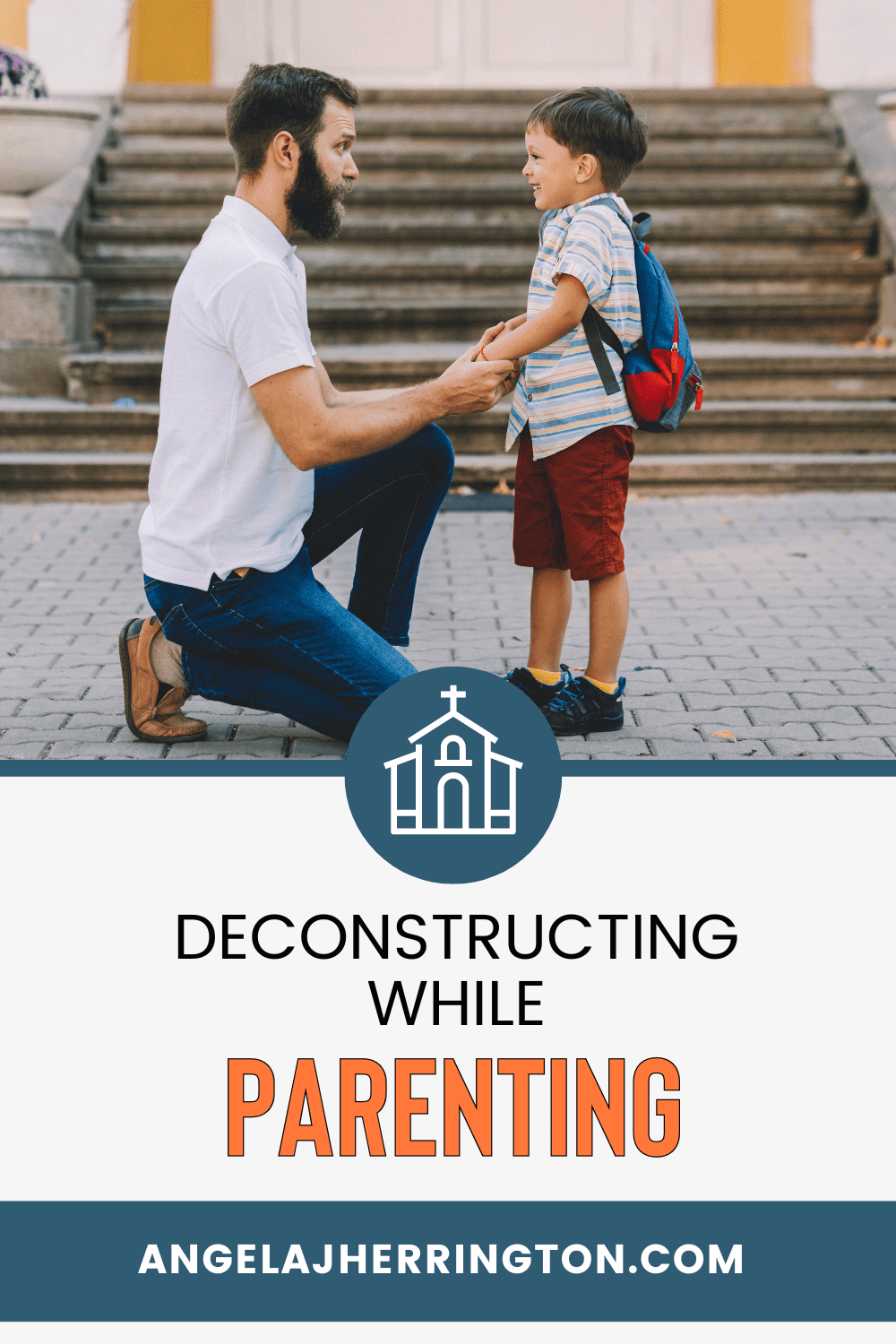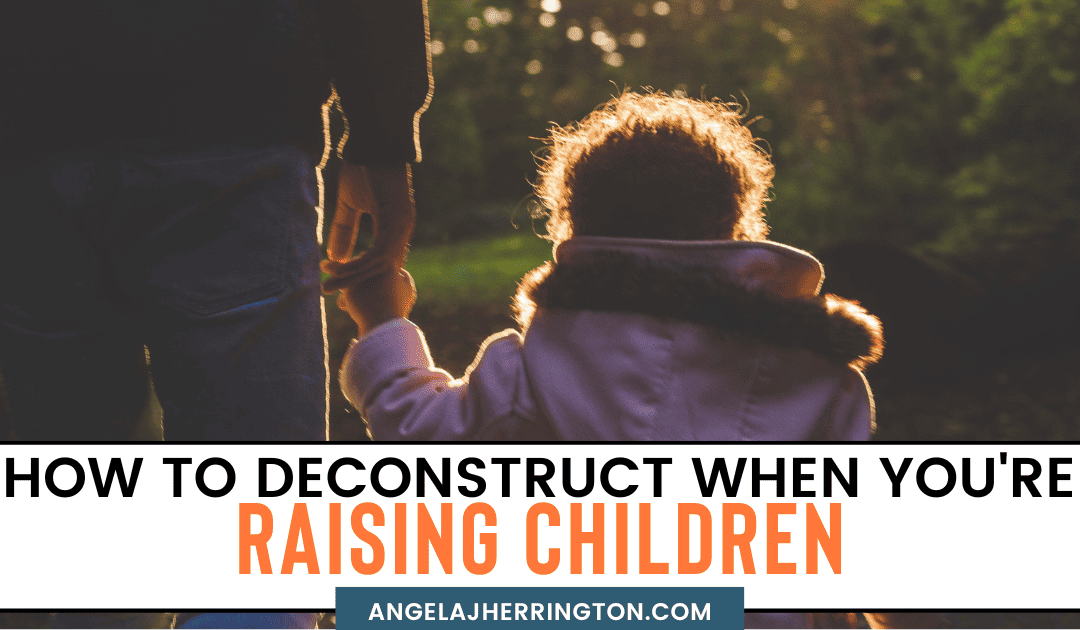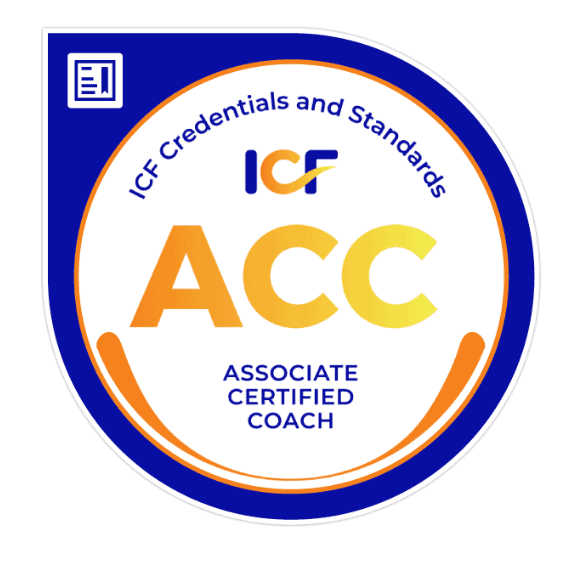“If you are finding yourself in the middle of deconstruction and trying to figure out how to handle it with kids, I hope you know you aren’t alone.
Challenging and questioning your faith is a big journey, and deconstructing your faith while parenting makes it even more tricky. You’re not just navigating your spiritual journey, but you’re also responsible for guiding your children on theirs. If you’ve been on the journey of untangling from toxic religion, you know it’s more than just beliefs. It’s behavior, ways of speaking, activities, and a whole way of life for many. When you choose to step away from this, it can create ripples you don’t expect, and navigating your kids’ reactions and sharing your experience with them is a whole process of its own.If you grew up in the Church, deconstructing your faith may have felt like something you’d never do.
You knew you would raise children in their faith, and their children would be Christians, and they would call you blessed. But life threw a curve ball, and now you are deconstructing while parenting. Or maybe you only spent a little time in the Church and realized it wasn’t a good fit, but your kids are still attached to it. So what do you do now?If you are feeling the pressure to sort it all out, here are six tips that helped me deconstruct while parenting my own kiddos.
1. Be honest with your kids about deconstructing while parenting
Let’s preface this with the fact that kids don’t need to know every little detail of how you are deconstructing your faith. That said, if you’re going through a period of questioning and exploration, don’t be afraid to be honest with your children. Explain to them that you’re on a journey of discovery and that your beliefs may be changing, and that it’s okay, but your schedule of going to services may be different, or things may shift. There are books that are written for a variety of age levels to share with them the wonder of praying to Mama God, and other faiths and how embracing diversity is a gift. Look into slowly introducing books, or different ideas and see how they react. Kids are smarter than you give them credit for, and are quick to catch on, they’ll look to their parents for encouragement or how they should react. Even if another adult in their life is panicked about your changing beliefs, your staying steady and grounded can show them that you and them are safe.Above all, ensure your kids know you love them and will always love them, no matter what. The world is big; encourage them to explore it.
2. Create a safe space for conversation.
Your number one goal as a parent is to hold space for messy conversations. Help your children feel comfortable discussing their beliefs and experiences with you, even when you don’t agree. Create a safe space where they can share their thoughts without fear of judgment or retribution. Encourage them to ask questions and share their own beliefs and experiences. Open discussions might look like dinner conversations or going on a walk and talking about it. Come up with questions to start the conversation, or ask them questions about what they believe and try not to react in a judgemental way. Kids learn to be open with people who don’t shame them but hear them and ask follow-up questions. Get curious, and spend time together. If sitting around a table feels awkward, doing something together like building a project, or exploring a hiking spot can get you out of the every day routine and create space to talk more openly.Remember, the conversation itself is the most important thing…Not whether your kids make any decisions or choices in the moment.
3. Embrace diverse perspectives when deconstructing while parenting.
Don’t just allow or tolerate perspectives other than your own. Actively seek them out and introduce them to your kids. Children learn about their world firstly through their parents. Exposure to different perspectives and beliefs can help you and your children broaden your understanding of faith. Attend services or events outside your usual tradition or engage with people from different religious backgrounds, read new books together, or listen to a podcast and talk about it afterward.Kids are more intelligent than you might give them credit for, so encourage them to trust themselves.
4. Encourage them to form their own beliefs.
It’s important to remember that your children are individuals with their own beliefs and experiences. Deconstructing your faith is a personal journey, and it’s important to respect your children’s beliefs and allow them to form their own opinions. This one can be really hard, especially if you come from a more tightly controlled religious space, and seeing your kids return time and again and come back excited can feel disappointing, especially if you feel like you’ve got the liberation key.Remember that deconstruction is a long journey, and as difficult as it might be to see them thriving in a space you didn’t, that may need to be where they are right now.
It’s also possible for you to talk with your partner or family members about alternative options (alternating Sundays at a park or at a different Church or community place), or perhaps you add to the kids’ schedule something new once a month for them to experience. If Church is all they have ever known, leaving may feel scary, and it’s important to recognize that. Deconstructing while parenting requires letting go of old ideas and embracing new ones while staying present to what those around you believe. Be open to change, and encourage your children to do the same if they desire. If not, that’s okay; you are on your journey and can’t walk theirs for them. Supporting them is all about creating an open, honest, compassionate dialogue that encourages growth and understanding.Remember, deconstructing your faith while parenting is not about indoctrinating your children with your own beliefs or trying to shield them from the realities of the world.
5. Prioritize values as a family over rigid beliefs.
There’s an idea in Christianity that they have the true moral compass, but other religious people, atheists, and agnostics worldwide also have exceptional morals. Instead of focusing on specific beliefs, prioritize values such as love, compassion, and empathy.Teach your children to prioritize these values in their lives and interactions with others.
6. Allow the complexity of the unknown to take center stage when parenting during deconstruction.
If you are struggling with your faith, be honest with your children. Explain that you are on a journey of discovery and may not have all the answers and that it is okay not to have the answers. (This can be hard if you come from a Church that was big on apologetics). Model this behavior yourself by openly discussing your doubts and questions. It can also be fun to explore answers with your children, dig into books together, head to museums. Science is full of stories of “What is this? Let’s find out!” mindset. See if you can’t cultivate that into this path you are on with your family. If everyone around you has closed fists on what is possible, you saying “maybe it can be both can be jarring but inviting. Stay open to ways you can share this with your kids, on how the world is not just black and white, day and night, but full of shades of twilight, dawn, sunset, and many different types of people and beliefs. Exploring those with them can be a fun journey all on its own.It may be hard to say, “I don’t know,” but kids appreciate it more than you realize.
Deconstructing while parenting will be messy, complex, and weird, and there will likely be tears and confusion, but together, you can navigate this journey.
We’re all figuring out this life thing together, and when you show your kids that they can prioritize their selves and their souls? That’s world-changing for them. Keep trusting yourself and being honest with yourself. You and the kids will be all right. Looking for a community to explore deconstruction? Come join us in the Faith Deconstruction Cafe, my Free Facebook Group for people just like you exploring what it means to leave Church, create a new path, and learn to trust yourself.Hungry for more? Here are a few popular faith deconstruction-related posts you’ll find helpful:
What Does it Mean to Deconstruct Your Faith? Sometimes You Have to Leave the Church to Find God Is Deconstructing Your Faith Biblical? 8 Reasons Why Christians Should be 2SLGBTQIA+ Allies Deconstructing While Parenting How to Get Out of Toxic Religion The Best Faith Deconstruction Conferences & Online Summits Deconstructing Your Faith When Your Partner Isn‘t The Best Books for Deconstructing Your Faith



Angela is a Faith Deconstruction Coach and host of The Deconstructing Faith Summit who helps people break free from toxic religious culture & empowers them to recover from #churchhurt. She has led online ministries for a decade, enjoys working with clients 1:1, in groups, and is a dynamic conference speaker. She’s a Lark’s Song Certified Life Coach who reaches thousands of people in 40+ countries each month on Facebook, IG, Twitter, Pinterest, and her blog.
She’s a firstborn, Enneagram 8, Gen Xer who loves to question everything. She holds a BA from Indiana Wesleyan and a Masters in Leadership from Wesley Seminary. Her graduate research project focused on leadership development and opportunities for Gen X women in the US church.
Angela and her unique online ministry are featured in Lyz Lenz’s 2019 book God Land: Story of Faith, Loss, and Renewal in Middle America. She has published articles in Hope for Women and HOPE is Now magazines. She has been featured in The New Republic, Publisher’s Today, and Religion News Service.
Her first book, Deconstructing Your Faith Without Losing Yourself, Will be published by Eerdmans in February 2023.
Angela is also a wife, mom to 5, and a proud resident of Marion, Indiana with her family when they’re not traveling the US in their RV.





